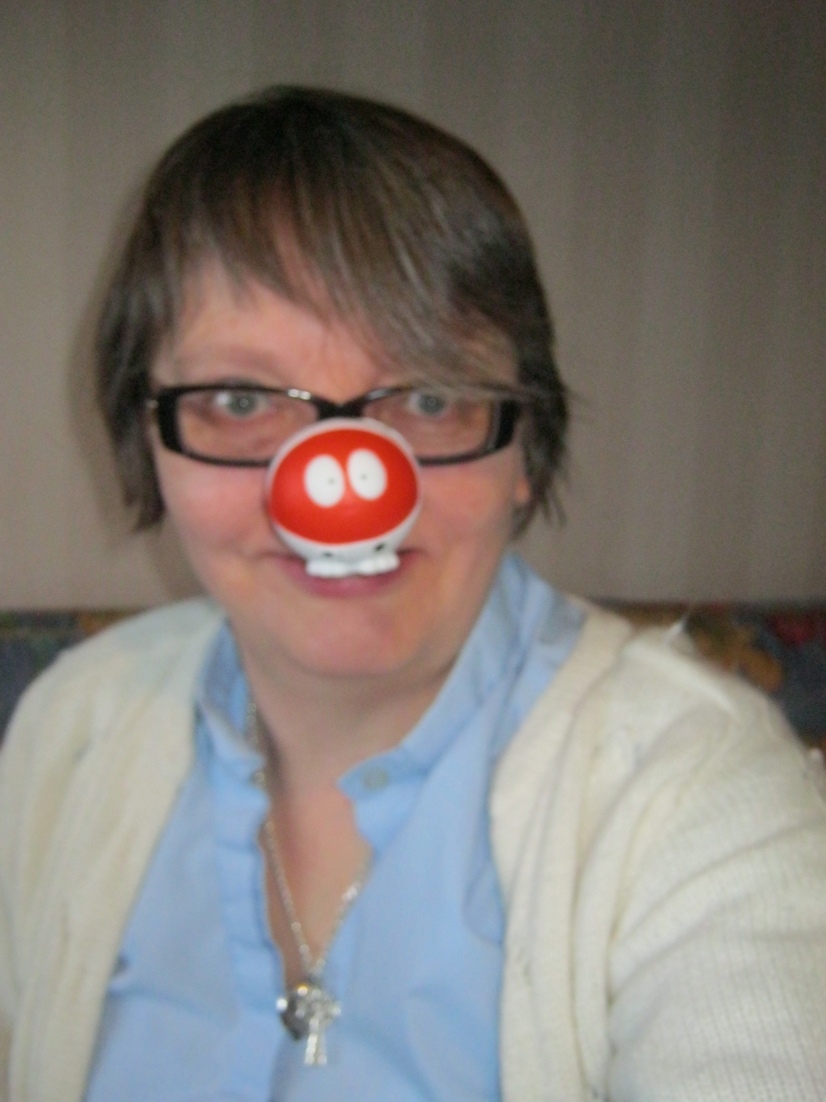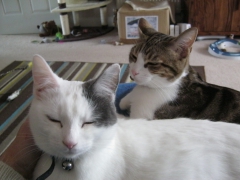And it's Red Nose Day, which I have supported since it began way back when (have cupboards full of noses and oodles of mugs. Way back when I even bought the cohange tomato teeshirt in C&A!!)
Anyway, dor day 21 we are invited to be silly, to make someone laugh, to have a laugh ourselves... hopefully this photo will bring a smile to my readers (clearical shirt for a bit of officialdom later today!)
Remember being told ‘Don’t be so silly’ as a kid? Well here’s your excuse to ignore that instruction. Hurrah! This act is about the generosity of laughter – whether it’s raising a smile with a wry observation, cracking a corny joke or donning a daft outfit – we make life a little lighter with humour.
EASY:
Crack a joke. Cheese jokes are our favourite (they’re brie-lliant!). Send it by twitter/facebook/snapchat/email/text or the good old-fashioned telephone, and make a friend smile.
MORE CHALLENGING:
It’s Red Nose Day so go on – buy and wear a red nose. You’ll be donating to a good cause and looking ridiculous all at once! How long can you put up with one?
FEELING INSPIRED?
Go all out and either organise a fundraising event or host a last-minute Red Nose party. Invite yourfriends, neighbours and colleagues to a comedy-themed meal with mandatory red noses.
They ask how long you can wear a red nose for... in my case just long enough to take the photo, wearing it actually makes me gag :-)
Speaking of gags, here's a cats and cheese joke...
What happened after the cat ate the cheese?
It waited by the mousehole with baited breath
:D

